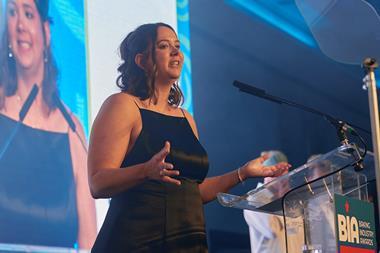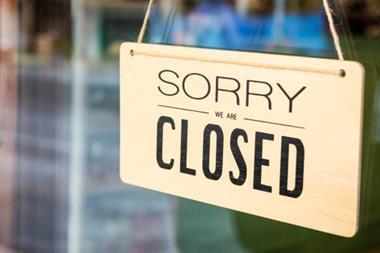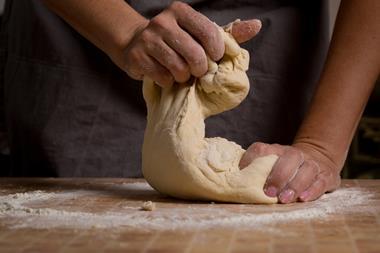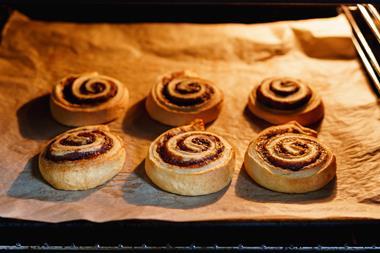Multimedia reporter Ashley Williams is in Mumbai to examine the differences between the British and Indian bakery markets. Here he talks with the boss of one of India’s leading food distributors.
Keyur Bhatia, chairman of food distributor TJUK Trade Networks, says bakery is one of the fastest-growing food categories in India.
He feels India is about 20 years behind the UK in terms of some processed food, adding that the gluten-free and vegan market is nowhere near as developed here as it is in the UK.
Free-from is only just being introduced into the bakery sector – mainly in premium stores – due to the lack of knowledge of coeliac disease. But Bhatia believes there is potential for gluten-free to grow as the Indian population is leaning towards healthier lifestyles.
One health concern is that 50 million people in India suffer from type two diabetes. Bhatia tells me the government has introduced reformulation similar to the UK, but only for drinks.
Britain could learn from the Indian market in some respects, particularly with regards to the frozen food category. This, he feels, carries a stigma in the UK, which needs to be educated around storage and usage.
Frozen foods are fresher and healthier than ambient products as they have a longer shelf-life and there are no preservatives in the product, he suggests, adding that frozen food captures the nutritional benefits soon after the food is harvested or cooked.
The retail structure in bakery is very different to the UK. In-store bakeries are not really widespread in India, with only a selected number in premium stores.
Small independent retailers known as mom and pop stores in India are split into four categories, with A being the highest and D being the lowest in terms of quality. For example, A class stores are similar to ones in the UK, with a variety of high-quality baked goods in stand-out packaging and at a higher cost. D class stores (pictured below) are very small shops with minimal products on offer at a cheap price.
A challenge in rural India for example is not every household has a freezer. Retail stores, particularly B and C class stores, do not all have freezers.
India is one of the biggest e-commerce markets in the world, with the largest amount of internet/smartphone users at 340 million.
The Indian public mainly use apps to purchase bakery products, says Bhatia, who explains that the drive to e-commerce has been fuelled by demonetisation; In November 2016, the government announced the demonetisation of all ₹500 (UK £5.00) and ₹1,000 (UK £10) banknotes in the Mahatma Gandhi Series.
The government claimed the action would curtail the shadow economy and crack down on the use of illicit and counterfeit cash to fund illegal activity and terrorism.
The sudden nature of the announcement – and the prolonged cash shortages in the weeks that followed – created significant disruption throughout the economy, threatening economic output. The move was heavily criticised as poorly planned and unfair, and was met with protests, litigation, and strikes.
Next up, British Baker reporter Ashley Williams will be travelling onto Nashik to meet Indian bakery business Signature International Foods, which also has an operation in Dunstable, Bedfordshire. He will talk with managing director Yatin Patel, and also Shilpa Agarwal, who will explain more about the Indian market.





























No comments yet